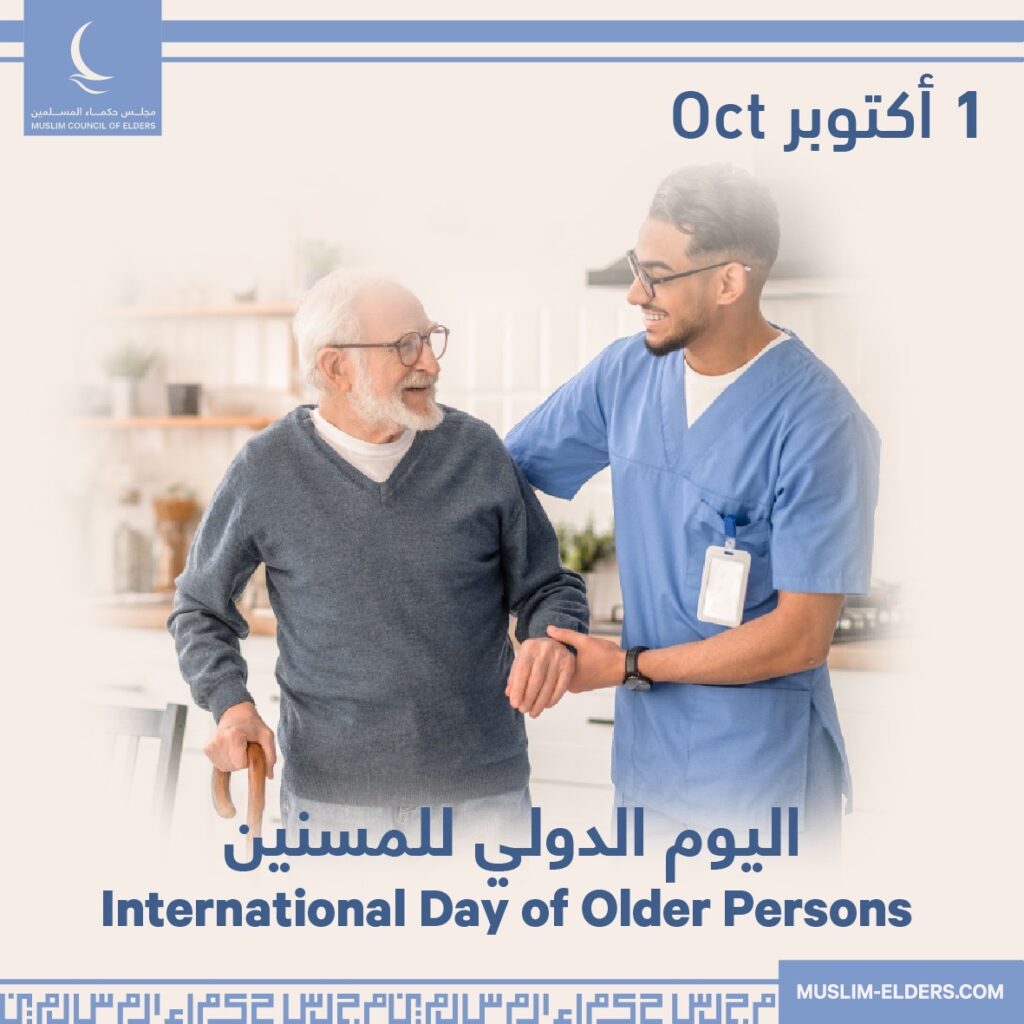The Muslim Council of Elders, chaired by His Eminence Prof. Dr. Ahmed Al-Tayeb, Grand Imam of Al-Azhar, affirmed that the annual celebration of the International Day of Older Persons on October 1 is not merely a symbolic event. Rather, it serves as a reminder of the esteemed position of older persons, an opportunity to honor their lifelong contributions, and a moment to acknowledge their pivotal role in building societies, nurturing generations, and upholding values.
In a statement marking this occasion, the Council underscored that Islam accords the elderly an exalted and dignified status. God Almighty has linked kindness to parents with His own worship, saying: “Worship Allah ˹alone˺ and associate none with Him. And be kind to parents” (The Qur’an, 4: 36). Likewise, the Prophet Muhammad (peace be upon him) urged respect and compassion, saying: “He is not one of us who does not show respect to our elders and mercy to our young” (Narrated by Ahmad). These teachings affirm that caring for the elderly is a religious, moral, and social obligation — one that embodies the essence of humane values founded upon mercy and benevolence.
The Muslim Council of Elders further highlighted the importance of safeguarding the dignity of older persons, recognizing them as the living memory of humanity — the custodians of its identity and accumulated wisdom. They embody a wealth of life experience and insight. The Council emphasized that passing down such wisdom and experience across generations strengthens societies in times of crisis and lays the groundwork for a more balanced and resilient future. It called for the enactment of laws and policies that ensure a dignified life for older persons, including access to comprehensive health, social, and psychological care, as well as programs that promote their active participation in community life in appreciation of their worth and in affirmation of their right to live with dignity.
The Muslim Council of Elders also reaffirmed its firm commitment to protecting the rights of older persons. In May of this year, it launched — in collaboration with the Catholic Church and the American Association of Retired Persons (AARP) — a global document in support of older persons and the preservation of their dignity. This initiative presents a unified vision aimed at strengthening collective efforts to support the elderly and uphold their rights to independence and full participation in society. It also seeks to shield them from all forms of discrimination, abuse, exploitation, and neglect, and to provide effective remedies where such violations occur. Moreover, it calls for empowering older persons to make informed choices for themselves and their families, and for ensuring access to high-quality healthcare that responds to their personal needs and respects their individual preferences.

